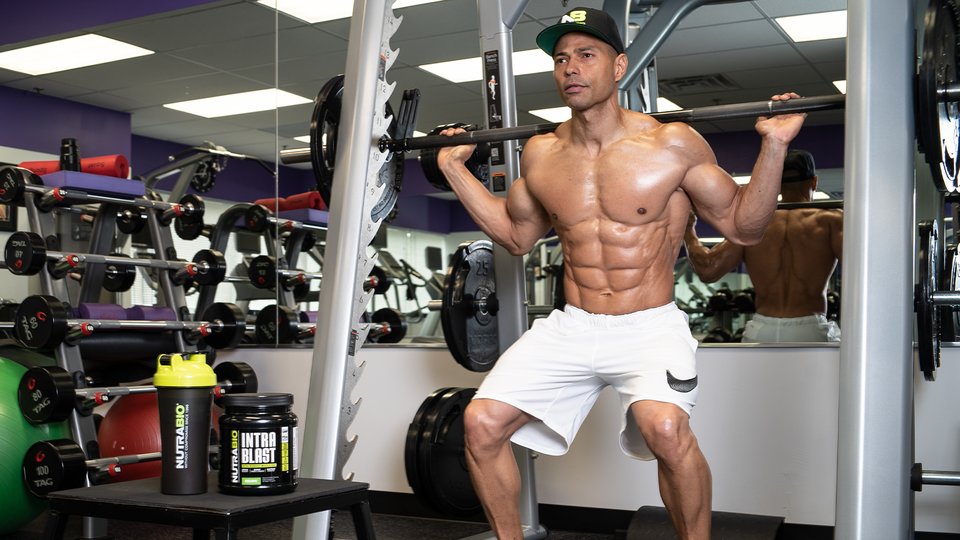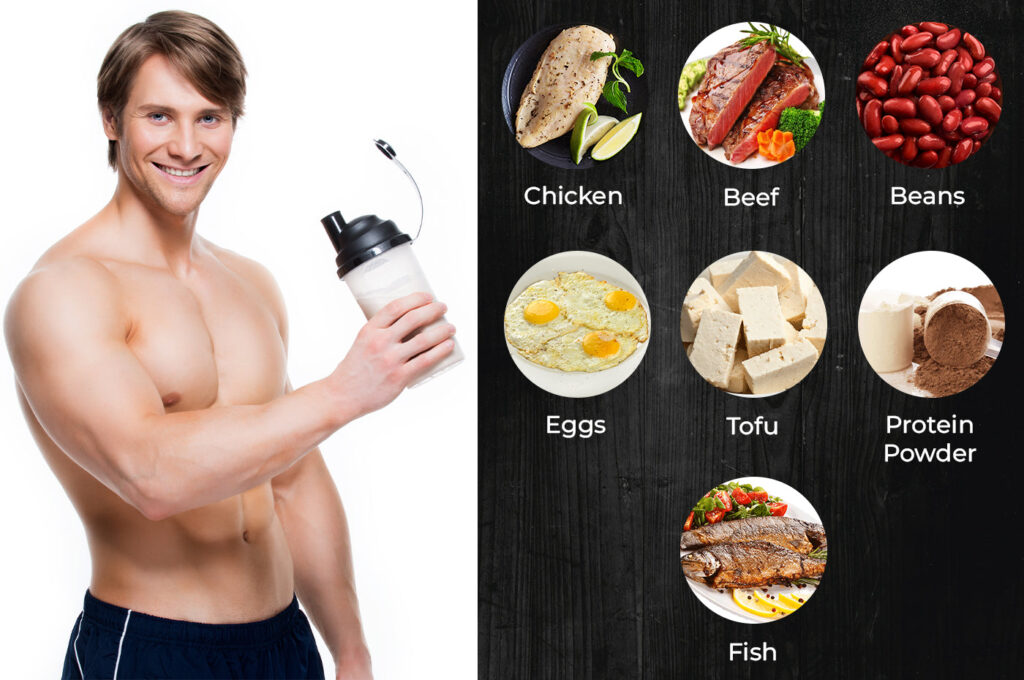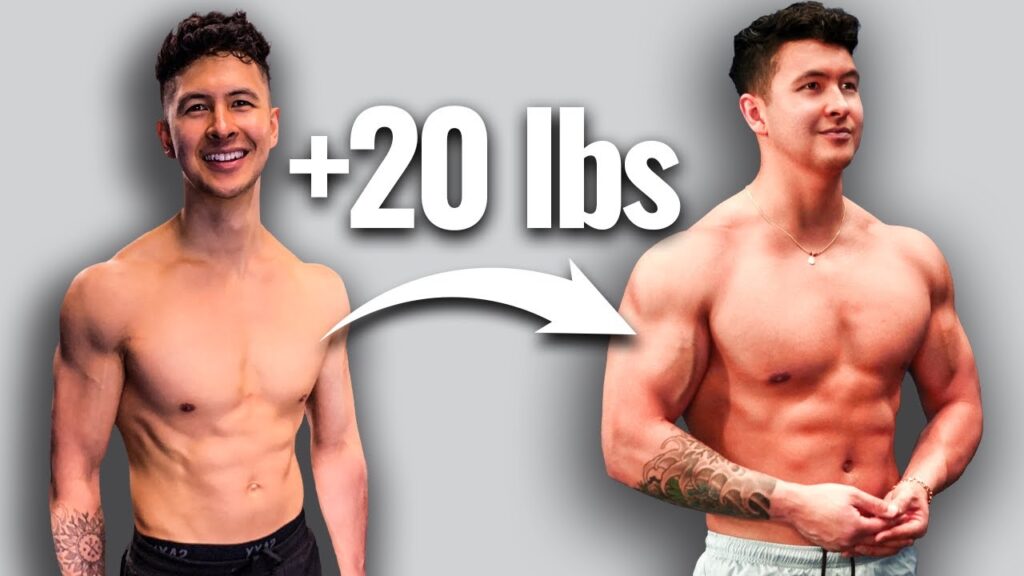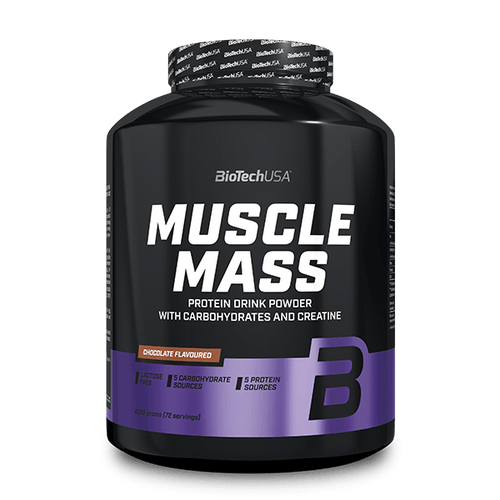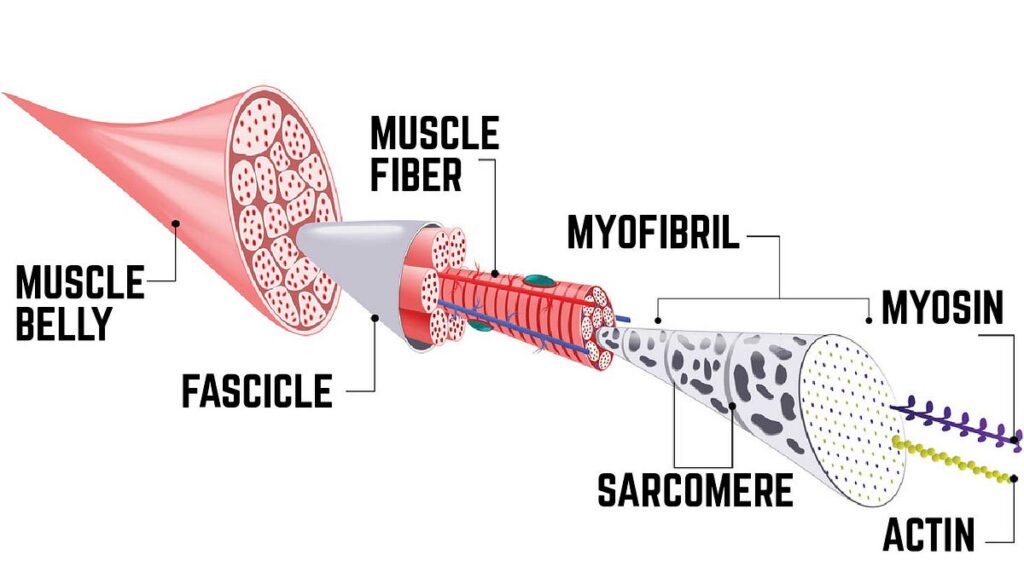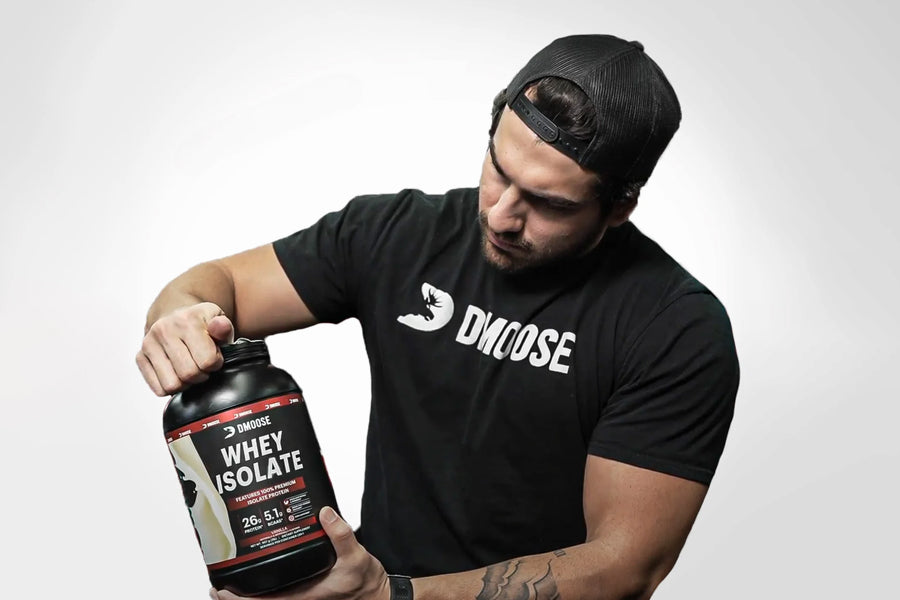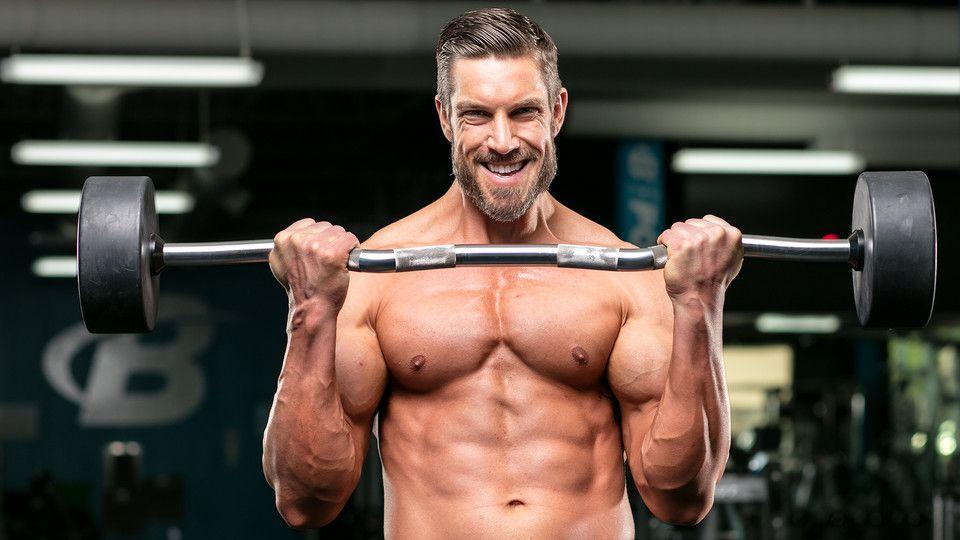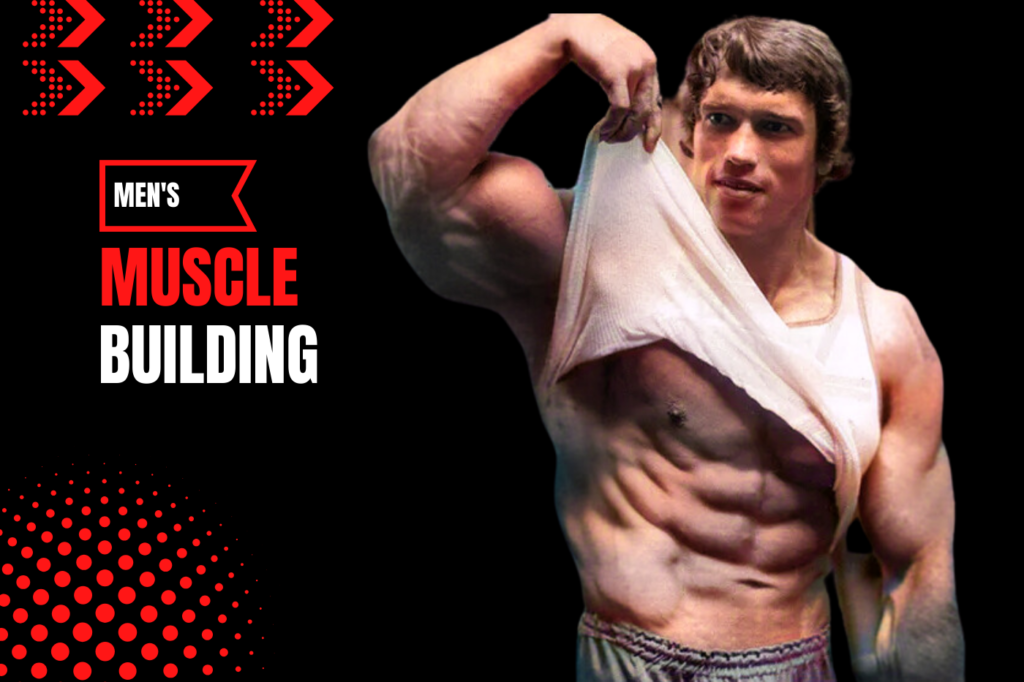Increase muscle mass naturally by following a balanced diet rich in protein and engaging in regular strength training exercises. Ensure adequate rest and sleep for optimal recovery.
Building muscle mass naturally requires a holistic approach that integrates nutrition, exercise, and rest. Consuming a protein-rich diet supports muscle repair and growth. Incorporate lean meats, fish, dairy, and plant-based proteins into your meals. Strength training exercises, such as weight lifting and resistance training, stimulate muscle fibers, promoting hypertrophy.
Consistency and progressive overload are key to seeing results. Rest and sleep are crucial as they allow muscles to recover and grow stronger. Aim for 7-9 hours of sleep each night. Hydration and stress management also play roles in muscle development. By maintaining this balanced lifestyle, you can effectively increase your muscle mass naturally.
Nutrition Essentials
Eating enough protein is very important. Muscles need protein to grow. Try to eat lean meats, beans, and nuts. Aim for at least 1 gram of protein per pound of body weight. Eggs and dairy are also great sources. Spread your protein intake across all meals.
Healthy fats help your body absorb vitamins. They also provide long-lasting energy. Choose fats from fish, avocados, and nuts. Olive oil is a good option for cooking. Avoid trans fats found in junk food. Healthy fats support muscle recovery too.
Carbohydrates give you energy for workouts. Whole grains and fruits are the best choices. Sweet potatoes and brown rice are great options. They release energy slowly and keep you full. Avoid sugary snacks that cause energy spikes and crashes.

Credit: www.bodybuilding.com
Strength Training
Weightlifting helps build muscle mass. Start with lighter weights. Gradually increase the weight. Use proper form to avoid injuries. Consistency is key. Lift weights at least twice a week. Focus on different muscle groups.
Bodyweight exercises are great for beginners. Exercises like push-ups, squats, and lunges build strength. No need for equipment. Do these exercises anywhere. Increase repetitions as you get stronger. These exercises improve balance and flexibility.
Progressive overload is essential for muscle growth. Increase the weight or repetitions over time. Track your progress. Make small increases each week. This method challenges muscles. It helps them grow stronger. Stay patient and persistent.
Workout Plans
Split routines target different muscle groups on different days. This allows muscles to rest and grow. For example, focus on legs one day and arms the next. These routines offer better recovery. Faster muscle growth happens with proper rest. Stick to a schedule for best results.
Full-body workouts engage all major muscles in one session. These workouts save time and improve overall strength. They help balance muscle growth across the body. Include exercises like squats, push-ups, and deadlifts. Aim for three sessions a week. Always maintain good form to prevent injuries.
Periodization involves varying workouts over time. This prevents muscle adaptation and promotes growth. Change intensity, volume, and exercises regularly. This method keeps muscles challenged. Plan cycles of 4 to 8 weeks. Monitor progress and adjust as needed.
Recovery Techniques
Good sleep helps muscles grow. Aim for at least 8 hours each night. Deep sleep is the best time for muscle repair. Keep your room dark and quiet. Avoid screens before bed. A cool room helps too. Stick to a sleep schedule.
Light exercise helps muscles recover. Try walking or swimming. Yoga and stretching are great too. Avoid heavy workouts on rest days. Active recovery boosts blood flow. Blood flow helps muscles heal faster.
Stretch after every workout. Hold each stretch for 15-30 seconds. Stretching reduces muscle soreness. It also increases flexibility. Make sure to stretch all major muscle groups. Never stretch cold muscles. Warm up before stretching.
Supplements
Protein powders help build muscle. They are easy to use. You can mix them with water or milk. They provide essential amino acids. This helps in muscle repair and growth. Whey protein is very popular. It is absorbed quickly by the body. Casein protein is another option. It is absorbed slowly. This makes it good for nighttime use.
Creatine boosts strength and performance. It is found in meat and fish. But, supplements give a higher dose. This helps in muscle gain. Creatine increases water in muscle cells. This makes muscles look bigger. It also gives more energy for workouts. This helps lift heavier weights.
BCAAs stand for Branched-Chain Amino Acids. They include leucine, isoleucine, and valine. These amino acids are essential. The body does not make them. They must come from food or supplements. BCAAs help reduce muscle soreness. They also increase muscle growth. They are good for recovery after exercise.

Credit: www.wikihow.com
Lifestyle Factors
High levels of stress can reduce muscle growth. Practice relaxation techniques like meditation and deep breathing. Spend time in nature to feel calm. Good sleep helps manage stress. Aim for 7-9 hours of sleep every night.
Water is essential for muscle growth. Drink at least 8 cups of water daily. Muscles need water to function well. Staying hydrated helps your body recover faster. Avoid sugary drinks; choose water or natural juices.
Building muscle takes time and effort. Regular exercise is crucial. Follow a workout plan and stick to it. Combine strength training with cardio. Don’t skip workouts. Healthy eating supports muscle growth. Include protein in every meal.
Tracking Progress
Use a tape measure to track your muscle growth. Measure your arms, chest, waist, and legs. Write down your measurements every week. This helps you see your progress over time. Take photos every month for a visual record.
Keep a workout journal. Write down how much weight you lift. Note the number of sets and reps. Increase weights gradually. Small increases mean big gains over time. Celebrate your new strength milestones.
Stand in front of a mirror. Notice changes in muscle size and shape. Look at your posture and muscle definition. Take progress photos every month. Compare them to see visual changes. Celebrate your hard work and results.

Credit: jackcityfitness.com
Common Mistakes
Overtraining can lead to fatigue and muscle loss. Muscles need time to recover and grow. Working out every day is not necessary. Allow for rest days in your routine. This helps prevent injury and promotes growth.
Nutrition is key for muscle growth. Eating junk food will not help. Focus on protein-rich foods like chicken and eggs. Do not forget carbs for energy. Vegetables and fruits provide essential vitamins. Drink plenty of water.
Recovery is as important as the workout itself. Sleep for at least 7-8 hours a night. Stretching helps to relieve muscle tension. Use foam rollers to ease soreness. Massage can also aid in muscle recovery. Never skip your cool-down exercises.
Frequently Asked Questions
What Foods Help Increase Muscle Mass Naturally?
Foods rich in protein, like chicken, fish, eggs, and legumes, help increase muscle mass. Nuts and seeds also provide essential nutrients.
How Does Sleep Affect Muscle Growth?
Adequate sleep aids muscle recovery and growth. During sleep, the body releases growth hormones that repair and build muscle tissue.
What Exercises Are Best For Muscle Gain?
Compound exercises like squats, deadlifts, and bench presses are best for muscle gain. They engage multiple muscle groups, promoting growth.
How Often Should I Work Out To Build Muscle?
Workout 3-5 times a week for optimal muscle growth. Ensure each session targets different muscle groups to prevent overtraining.
Conclusion
Building muscle mass naturally requires dedication and consistency. Focus on balanced nutrition, regular exercise, and proper rest. Listen to your body and stay patient. Achieving your fitness goals takes time, but the results are worth the effort. Start your journey to a healthier, stronger you today.

